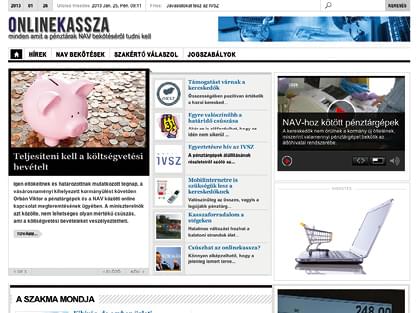Receipts and invoices
When we talk about cash register systems, we have to make an important distinction between cash registers and receipt printing systems – says Imre Mészöly, regional head of Citizen Systems. There are 400,000 cash registers on the Hungarian market – these are the things we can see in the corner shop or at the newsagent’s.
As for receipt printing systems, in these the fiscal printer is part of an IT system – these we can usually find in the units of major retail chains, where there is complex infrastructure in the background, printing receipts on POS printers; there are about 50,000 of them in Hungary. According to the new law, these devices have to be equipped with a so-called fiscal module, in order to facilitate the supervision of receipts, invoices and cash turnover. The currently used memory chip system of printers, read by authorities once a year, is going to be replaced with direct online connection which makes instant checks possible for the authorities. Mr Mészöly’s estimation is that the switch costs HUF 70,000-250,000 per device for those using a simple cash register system. With receipt printing systems a committee will authorise the implementation of the new law’s requirements, which could cost up to HUF 3-5 million per system. According to Zsolt Szeip, head of innovation and project management at Laurel Informatics Kft. it is a progressive idea to connect cash registers with the National Tax and Customs Office (NAV) and several international examples show that it works. But at the same time it is also very important to create legislation that can be put into practice without difficulties. The costs of online connection between cash registers and NAV will primarily depend on the type of requirements to be set by the authorities. Information from early this year mentions HUF 40,000-50,000 state support per cash register, but purchasing a new one could cost as much as HUF 100,000. At the moment it is difficult to prepare for the changes as the conditions are not specified yet. It is not only the costs that could cause a problem but short deadlines as well. Mr Mészöly is of the opinion that there is no manufacturer in Hungary or anywhere else who would be able to develop the new fiscal module for cash registers before the current deadline, not to mention the fact that the authorisation process also takes time. It is needles to say that technical problems can always occur, which could also slow down the process.
Related news
Related news
MBH quick analysis: Tourism will continue to soar this year
🎧 Hallgasd a cikket: Lejátszás Szünet Folytatás Leállítás Nyelv: Auto…
Read more >A stable compass in the Hungarian FMCG sector for 20 years
🎧 Hallgasd a cikket: Lejátszás Szünet Folytatás Leállítás Nyelv: Auto…
Read more >






